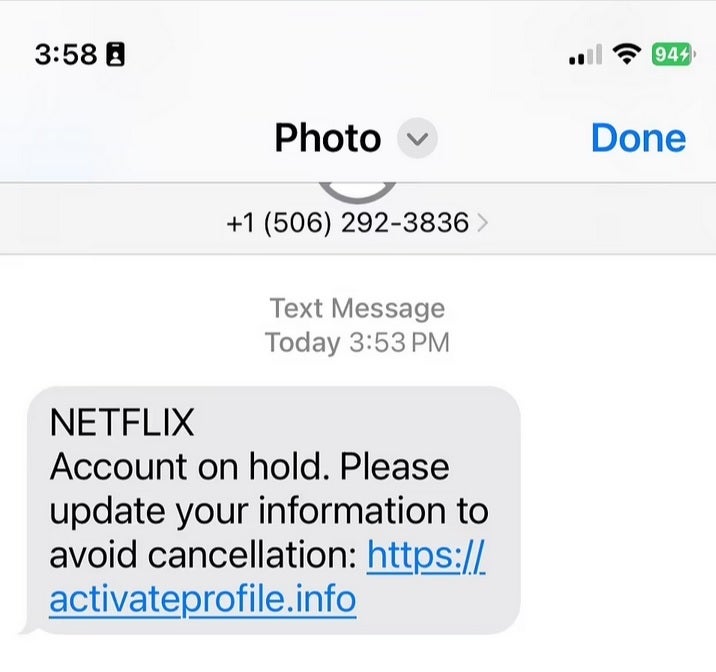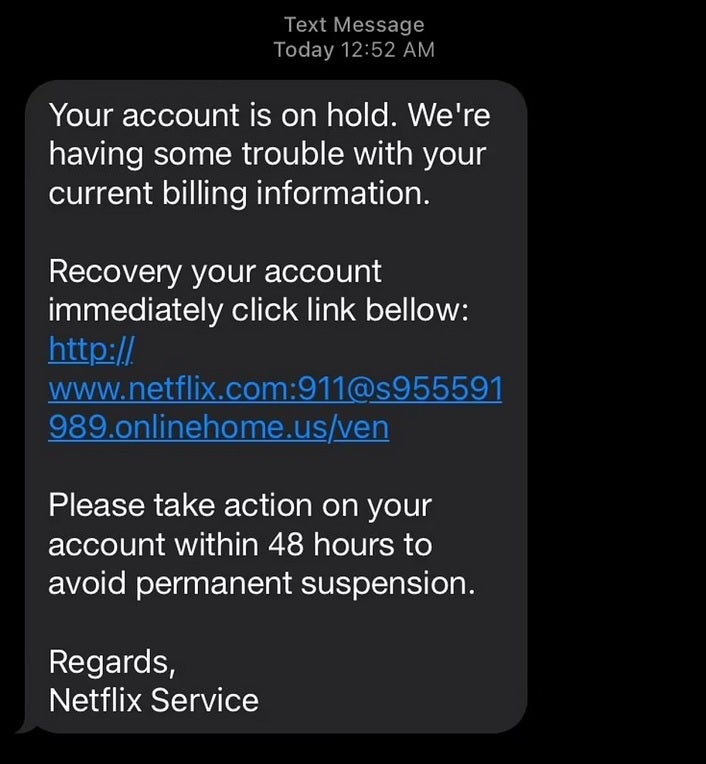Netflix subscribers are warned that they are the target of a dangerous SMS phishing campaign

It's absolutely nuts to think that more than 13 years and five months ago we were telling you about the Netflix app becoming available for the Motorola DROID and DROID X from the Android Market. We've gone from Android 2 to Android 15, the Android Market is now the Google Play Store, Netflix now offers a wide range of original content, and Motorola is trying to recapture the magic that made it and HTC early leaders among Android phone manufacturers.
One thing that we didn't worry about too much back in 2011 that we worry about now is the possibility of getting scammed by phishing attacks. These are emails or texts that are made to look as though they were sent from a company you do business with asking you to reveal personal information. Cybersecurity researchers are reporting that hackers are running an SMS phishing campaign against Netflix subscribers that seeks to access their Netflix accounts and steal information about the credit cards used to pay for the service.
"We will never ask you to enter your personal information in a text or email. We will never request payment through a 3rd party vendor or website"-Netflix statement
These bogus texts make it appear as though a subscriber's account was placed on hold and ask the subscriber to update his/her information by clicking on a link. Here's the scary part. This link will take the victim to a website that looks remarkably like the real Netflix site with a prompt asking for login and credit card information. If the information they request is provided to them, the scammers will take over control of the victim's Netflix account and will have the ability to use his/her credit card and wipe out the remaining credit available.

Some Netflix subscribers are being targeted as part of a phishing campaign that steals account and credit card information. | Image credit-Daily Mail
Security experts are warning Netflix subscribers to be on the lookout for any texts or emails stating that their Netflix account is on hold or will soon be suspended. Other texts accuse the subscriber of not paying for the service and urgently demand payment by threatening to cancel the account. Do not press on any links that are included in the text or email. You might be able to tell that the text and website are fakes since they are usually loaded with grammatical and spelling errors.

Another fake text that is part of the phishing campaign directed at Netflix subscribers. | Image credit-Daily Mail
The phishing campaign was discovered by cyber security firm Bitdefender. The security firm says that it spotted this campaign running in 23 countries, including the United States, since September. If you do receive this text, ignore it and delete it.
Follow us on Google News













Things that are NOT allowed:
To help keep our community safe and free from spam, we apply temporary limits to newly created accounts: